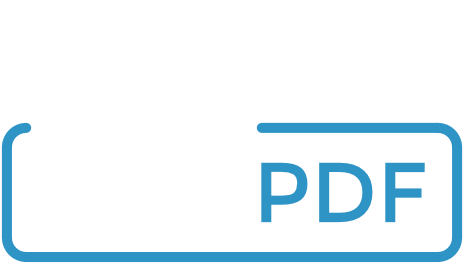Complementary & Alternative Medicines: Curcuma longa (Turmeric)
- July 4, 2018
Curcuma longa (Turmeric) |
 |
| July 2018 |
|
There is far less information about the effectiveness, safety and potential for interactions for complementary and alternative medicines (CAMs) compared to conventional medicines. There is no regulation of their quality or contents in New Zealand. Consider also other risks of CAMs, such as patients choosing them over conventional treatment, and the often substantial cost. Report any possible adverse effects or interactions to CARM. |
 What is it?
What is it?
Turmeric (Curcuma longa) is a plant native to South Asia. It is used as both a spice in regional cuisines and a colouring agent in food and cosmetics. The main active constituent in turmeric is curcumin. Curcumin has anti-inflammatory activity, with modest inhibition of cyclooxygenase-2 (COX2), and can disrupt synthesis of prostaglandins at other sites. It may also inhibit platelet activating factor and platelet aggregation.
What do people use it for?
Traditionally, turmeric has been used to “improve circulation and digestion”. It is also used in Ayurvedic medicine to treat a wide range of disorders.
Doses in clinical trials are typically in the range of 1000 mg to 2000 mg per day, taken in two or three divided doses.
Does it work?
There is limited evidence to support efficacy. Evidence is generally from small short-term studies:
| Uses | Supporting Data |
| Hyperlipidaemia | Two small, short-term studies comparing turmeric to placebo both showed turmeric reduced total cholesterol, but had inconsistent results on lipoproteins. |
| Osteoarthritis | Meta-analysis of 8 randomised clinical trials (n=937 patients) showed turmeric reduced pain, although the effects were generally modest and comparable to low doses of ibuprofen. |
| Pruritus | In a single trial of 100 patients with end stage renal failure, turmeric was shown to be more effective than placebo at relieving itch. |
| Depression | Meta-analysis of 6 clinical trials (n=377 patients) lasting 4 to 8 weeks showed turmeric was only marginally more effective than placebo at ameliorating depressive symptoms. |
Turmeric has been proposed to treat a wide range of other conditions including dyspepsia, rheumatoid arthritis, ulcerative colitis, diabetic nephropathy and Alzheimer’s disease. We found no clinical trial data to support these claims. Curcumin has been shown to have inhibitory effects on cancer cells; however, any beneficial effects at preventing or treating cancers are only seen at serum concentrations much higher than those that can be obtained from available formulations.
Is it safe?
Turmeric may increase contractions of the gallbladder and is contraindicated in patients with gallbladder disorders, bile duct obstruction, gallstones, gastrointestinal ulcers or hyperacidity disorders. The most common adverse effects are dyspepsia, diarrhoea, gastrointestinal reflux, nausea and vomiting. If applied topically it may cause dermatitis. Turmeric seems to be safe in doses up to 6 g per day when taken for 4 to 7 weeks.
Should women who are pregnant or breastfeeding take it?
Turmeric is probably safe to take in quantities commonly found in foods (up to 200 mg per day), but higher doses have not been studied.
Does it interact with medicines?
Concurrent use of any narrow therapeutic index drug with CAMs requires caution and appropriate monitoring. Curcumin has the potential to interact with many medicines:
| Drug | Interaction |
| Cytochrome P (CYP) 450 enzyme substrates | In vitro and animal testing shows that curcumin may be a moderate inhibitor of CYP1A2, CYP2C19, CYP2D6 and CYP3A. It may increase serum concentrations and adverse effects of medicines that are extensively metabolised by these enzymes, although there are few reported interactions in humans. |
| P-glycoprotein substrates | In vitro and animal research shows curcumin can inhibit P-glycoprotein activity. Theoretically, it may increase absorption of P-glycoprotein substrates, with potential for increased concentrations and adverse effects. |
| Antiplatelet drugs | Curcumin has in vitro antiplatelet effects and should be used with caution in patients taking antiplatelets. |
| Antidiabetic drugs | Case reports suggest curcumin may reduce blood glucose concentrations and HbA1C. This may increase the risk of hypoglycaemia with antidiabetic drugs. |
|
Key points: Medsafe recently issued a warning that turmeric may interact with warfarin following a case report to CARM. The report described a patient on warfarin with a previously stable INR that increased to over 10 within a few weeks of starting a turmeric supplement. |
References
• Medsafe. Safety Information. Early Warning System – Monitoring Communication. Beware turmeric/ curcumin containing products can interact with warfarin. http://www.medsafe.govt.nz/safety/EWS/2018/Turmeric.asp, 30 April 2018.
• About herbs. Memorial Sloan Kettering Cancer Center. www.mskcc.org/cancer-care/treatments/symptom-management/integrative-medicine/herbs/search
• Heger M., van Golen R.F., Broekgaarden M., Michel M.C. The molecular basis for the pharmacokinetics and pharmacodynamics of curcumin and its metabolites in relation to cancers. Pharmacological Reviews. 66 (1) (pp 222-307), 2014.
• Shen C.-L., Smith B.J., Lo D.-F., Chyu M.-C., Dunn D.M., Chen C.-H., Kwun I.-S. Dietary polyphenols and mechanisms of osteoarthritis. Journal of Nutritional Biochemistry. 23 (11) (pp 1367-1377), 2012.
• Natural Medicines [Internet]. 2016 [cited 2018 Mar 20]. Available from: https://naturalmedicines.therapeuticresearch.com/
• Pashine l, Singh JV, Vaish AK, Ojha SK, Mahdi AA. Effect of turmeric (Curcuma longa) on overweight hyperlipidemic subjects: Double blind study. Indian J Comm Health 2012;24(2):113-117.
• Tappia P.S., Xu Y.-J., Dhalla N.S. Reduction of cholesterol and other cardiovascular disease risk factors by alternative therapies. Clinical Lipidology. 8 (3) (pp 345-359), 2013
• Daily J.W., Yang M., Park S. Efficacy of Turmeric Extracts and Curcumin for Alleviating the Symptoms of Joint Arthritis: A Systematic Review and Meta-Analysis of Randomized Clinical Trials. Journal of Medicinal Food. 19 (8) (pp 717-729), 2016.
• Kuptniratsaikul V, Thanakhumtorn S, Chinswangwatanakul P, Wattanamongkobnsil L, Thamlikitkul V. Efficacy and safety of Curcuma domestica extracts in patients with knee osteoarthritis. J Altern Complement Med. 2009 Aug;15(8):891-7.
• Pakfetrat M., Basiri F., Malekmakan L., Roozbeh J. Effects of turmeric on uremic pruritus in end stage renal disease patients: A double-blind randomized clinical trial. Journal of Nephrology. 27 (2) (pp 203-207), 2014.
• Ng Q.X., Koh S.S.H., Chan H.W., Ho C.Y.X. Clinical Use of Curcumin in Depression: A Meta-Analysis. Journal of the American Medical Directors Association. 18 (6) (pp 503-508), 2017
• Heger M., van Golen R.F., Broekgaarden M., Michel M.C. The molecular basis for the pharmacokinetics and pharmacodynamics of curcumin and its metabolites in relation to cancers. Pharmacological Reviews. 66 (1) (pp 222-307), 2014.
• Rasyid A., Rahman A.R., Jaalam K., Lelo A. Effect of different curcumin dosages on human gall bladder. Asia Pacific journal of clinical nutrition. 11 (4) (pp 314-318), 2002.
• Sasaki T., Sato Y., Kumagai T., Yoshinari K., Nagata K. Effect of health foods on cytochrome P450-mediated drug metabolism. Journal of Pharmaceutical Health Care and Sciences. 3 (1) (no pagination), 2017
• Li Y., Revalde J., Paxton J.W. The effects of dietary and herbal phytochemicals on drug transporters. Advanced Drug Delivery Reviews. 116 (pp 45-62), 2017.
• Soleimani V., Sahebkar A., Hosseinzadeh H. Turmeric (Curcuma longa) and its major constituent (curcumin) as nontoxic and safe substances: Review.Phytotherapy Research. (no pagination), 2018.

 Download PDF
Download PDF